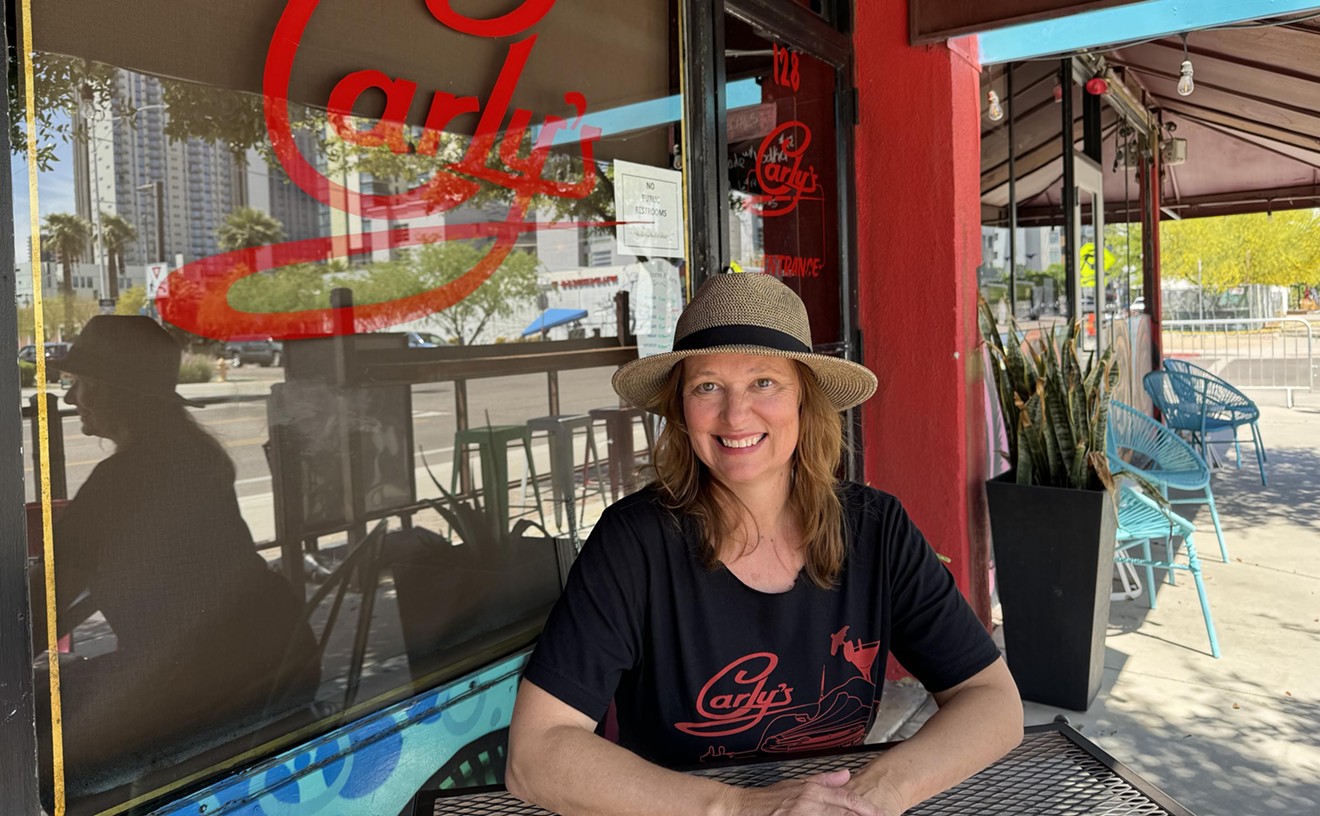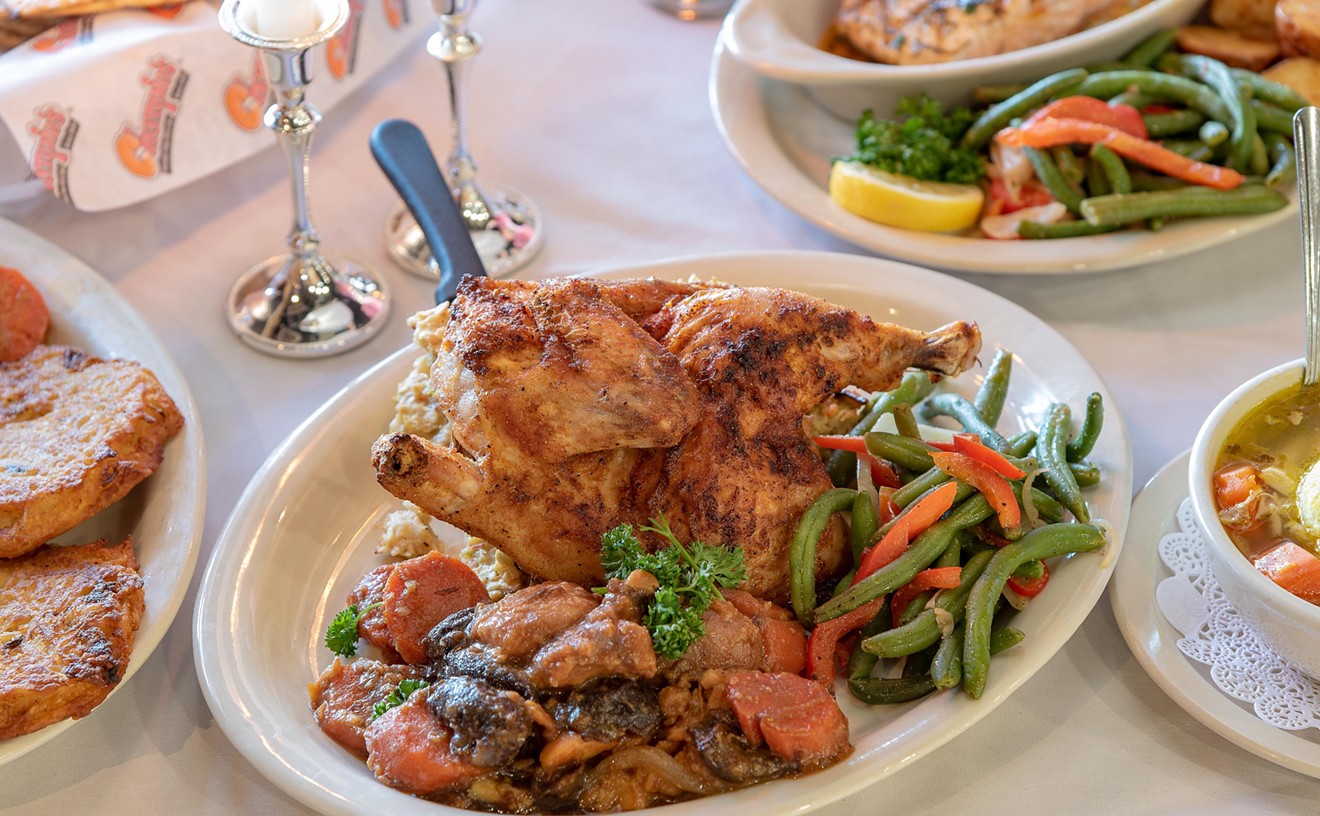Take one step inside the newly built Whole Foods Market near the intersection of Camelback and 20th Street and it's easy to see that the natural foods industry has come a long way in the past two decades. The store is a gleaming beacon for healthful eaters and lovers of artisan food and a far cry from the tiny natural foods sections of grocery stores of the past. Few people appreciate the monumental progress the industry has made better than Phoenix-based author Joe Dobrow, who's been eating all natural food since the mid-'80s.
The former marketing executive also has worked for many of the biggest names in the natural foods industry, including Whole Foods, Sprouts, and Fresh Fields. And in his upcoming book, Natural Prophets, he gives an insider's look at how these brands and others have changed the American plate forever.
See also: New Year-Round Farmers Market to Launch in Tempe, and It's Seeking Vendors
The book, which will hit shelves on Tuesday, February 18, tells the stories of numerous natural foods companies that emerged during the years after World War II. Some are tales of success, like the story of Whole Foods Market. But others don't have such a happy ending.
Such is the case with Frookies and the company's owner, Richard Worth. Don't know the name or the product? Well that's not a surprise, though in the late '80s and early '90s, Frookies, a brand of fruit juice-sweetened cookies, took supermarkets across the country by storm. In just a few years, the company got its product into more than 60 percent of grocery stores nationwide, taking a bite out of the $7 billion cookie and cracker industry.
"Behind the scenes, [Worth] felt like he was changing the world," Dobrow says. "A lot of these guys did."
But Worth's story ends with "an amazing descent into nothingness," as Dobrow tells it. The company was gone within a year after Worth tried to expand too quickly, taking on giants like Nabisco and General Mills.
The book also covers some of the history of the company that's become synonymous with health food stores: Whole Foods. Dobrow worked as national director of marketing for the company for seven years and consulted two Whole Foods board members and two former Whole Foods presidents while working on the book.
"Whole Foods is an amazing business with an amazing story," Dobrow says.
The Austin-based company -- which has eight stores in Arizona -- opened its doors in 1980. It's since become the leading natural foods store, having acquired more than a dozen other companies along the way. But what we see of the company here in Arizona might not be the best representation, Dobrow says.
"Whole Foods has not put its best foot forward in Arizona," he says.
The newest store is a start, but Dobrow says the company has struggled to "right-size" its Arizona stores to the surrounding communities. According to the author, Phoenix's stores are only "moderately sized" for the areas they serve. Nevertheless, he says, Whole Foods still does the best job of appealing to natural food consumers, saying, "As somebody who likes food and who wants to eat all-natural, it's the best place to go."
So where do all those other healthy-food stores stand? As Dobrow explains it, your other popular shopping destinations probably aren't even trying to complete with Whole Foods. Take Sprouts, for example, which he describes as a "second-stop shop" market, where consumers know to look for one thing specifically: cheap, quality produce.
"In some ways, Sprouts is no different than Fry's," Dobrow says.
He labels the chain of specialty grocery stores as a new type of "hybrid market" that benefits from appealing to health-conscious shoppers, while still stocking shelves with products you'd never find at a strictly all-natural store.
And as far as the price difference between the two, Dobrow says it's not as significant as you might think.
"Both of those stores have a halo effect from what they do well," he says. "If you shop at Whole Foods the same way you shop at Sprouts, you would spend about the same amount."
So for Whole Foods, that means that consumers tend to believe everything in the store is more expensive since the company is known for selling artisan and seasonal (and sometimes pricey) products. On the other side of the coin, Sprouts' reputation for selling quality produce at a low price point creates a perception that everything in the store is less expensive, too.
But no matter where you're shopping, Dobrow says, his insider's look at the natural foods industry has given him confidence in the companies that make it up.
"From what I've seen behind the scenes, these companies are doing things right."
You can catch Dobrow on Friday, February 21 at Changing Hands Bookstore in Tempe. The author will present his book Natural Prophets: From Health Foods to Whole Foods -- How the Pioneers of the Industry Changed the Way We Eat and Reshaped American Business (available for $27.99 online and in-store) at 7 p.m.
For more information visit the Changing Hands Bookstore website. For more information about Joe Dobrow or to see his other work, you can check out his personal website and the Natural Prophets website.










